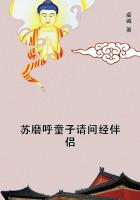Michael knew that his path, the way that seemed to lead in the direction of the ultimate goal, was music. There, somehow, in that direction lay his destiny; that was the route. He was not like the majority of his *** and years, who weave their physical and mental dreams in the loom of a girl's face, in her glance, in the curves of her mouth. Deliberately, owing chiefly to his morbid consciousness of his own physical defects, he had long been accustomed to check the instincts natural to a young man in this regard. He had seen too often the facility with which others, more fortunate than he, get delightedly lost in that golden haze; he had experienced too often the absence of attractiveness in himself.
How could any girl of the London ballroom, he had so frequently asked himself, tolerate dancing or sitting out with him when there was Francis, and a hundred others like him, so pleased to take his place? Nor, so he told himself, was his mind one whit more apt than his body. It did not move lightly and agreeably with unconscious smiles and easy laughter. By nature he was monkish, he was celibate. He could but cease to burn incense at such ineffectual altars, and help, as he had helped this afternoon, to replenish the censers of more fortunate acolytes.
This was all familiar to him; it passed through his head unbidden, when Francis had left him, like the refrain of some well-known song, occurring spontaneously without need of an effort of memory.
It was a possession of his, known by heart, and it no longer, except for momentary twinges, had any bitterness for him. This afternoon, it is true, there had been one such, when Francis, gleeful with his cheque, had gone out to his dinner and his theatre and his dance, inviting him cheerfully to all of them. In just that had been the bitterness--namely, that Francis had so overflowing a well-spring of content that he could be cordial in bidding him cast a certain gloom over these entertainments.
Michael knew, quite unerringly, that Francis and his friends would not enjoy themselves quite so much if he was with them; there would be the restraint of polite conversation at dinner instead of completely idle babble, there would be less outspoken normality at the Gaiety, a little more decorum about the whole of the boyish proceedings. He knew all that so well, so terribly well. . . .
His servant had come in with the evening paper, and the implied suggestion of the propriety of going to dress before he roused himself. He decided not to dress, as he was going to spend the evening alone, and, instead, he seated himself at the piano with his copy of the Meistersingers and, mechanically at first, with the ragged cloud-fleeces of his reverie hanging about his brain, banged away at the overture. He had extraordinary dexterity of finger for one who had had so little training, and his hands, with their great stretch, made light work of octaves and even tenths. His knowledge of the music enabled him to wake the singing bird of memory in his head, and before long flute and horn and string and woodwind began to make themselves heard in his inner ear. Twice his servant came in to tell him that his dinner was ready, but Michael had no heed for anything but the sounds which his flying fingers suggested to him. Francis, his father, his own failure in the life that had been thrust on him were all gone; he was with the singers of Nuremberg.















